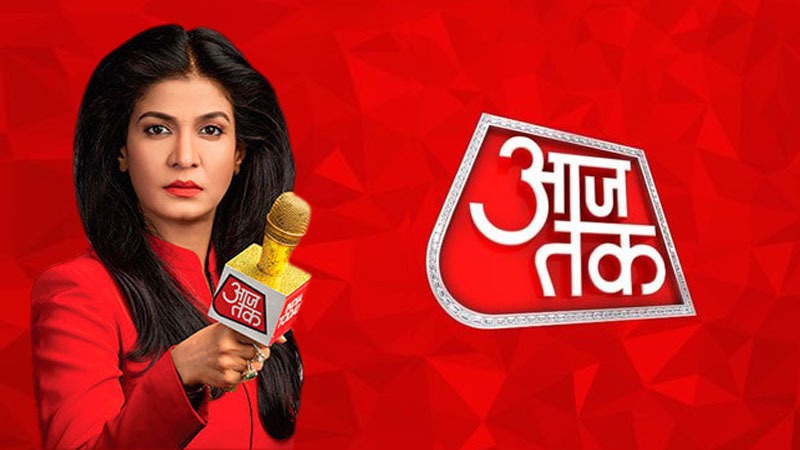
Delhi High Court Issues Permanent Injunction in Anjana Om Kashyap Deepfake Case, Strengthens Protection Against Digital Impersonation
Court Rules Unauthorized Deepfake Content Violates Personality and IP Rights
Judgment Highlights Growing Legal Battle Against AI-Driven Fake Media
By Our Legal Reporter
New Delhi: November 19, 2025:
In a landmark judgment, the Delhi High Court has made permanent its injunction against a rogue YouTube channel that impersonated Aaj Tak anchor Anjana Om Kashyap using deepfake technology. The Court’s decision, delivered in TV Today Network Ltd. & Anr v. Google LLC & Ors., underscores the judiciary’s growing role in tackling the misuse of artificial intelligence for creating fake content.
The case is significant because it directly addresses the legal implications of deepfakes, which have become a global concern due to their potential to spread misinformation, damage reputations, and erode public trust in media.
Background of the Case
The dispute began when TV Today Network Ltd., which owns the Aaj Tak brand, discovered a YouTube channel that was producing fabricated videos using Kashyap’s image and voice. These videos falsely portrayed her as presenting news segments that she had never recorded.
- The channel used deepfake technology to manipulate her likeness.
- It misled viewers into believing the content was authentic.
- The fabricated clips damaged both Kashyap’s reputation and the credibility of Aaj Tak.
Also Read: ITAT Rules Capital Gains Must Reflect Real Sale Value, Quashes Section 263 Revision Orders
TV Today Network filed a suit seeking an injunction against the channel and its operators.
Interim Orders
Earlier, the Delhi High Court had passed interim orders directing Google and YouTube to take down the channel. Justice Prathiba M. Singh emphasized that impersonation through deepfakes posed a serious threat to journalism and public trust.
The Court noted that allowing such channels to operate unchecked would encourage digital fraud and reputational harm.
Permanent Injunction
In November 2025, Justice Tejas Karia made the injunction permanent, after the channel’s creator failed to appear in court despite being served notice.
Key points of the ruling:
- Unauthorized use of Kashyap’s image and voice is illegal.
- Deepfake impersonation violates personality rights.
- Intellectual property of TV Today Network was infringed.
- Google and YouTube must ensure compliance with takedown orders.
The Court’s decision sends a strong message that Indian law will not tolerate misuse of AI technologies for impersonation and fraud.
Legal Perspective
From a legal standpoint, the case raises important issues:
1. Personality Rights:
- Indian courts increasingly recognize the right of individuals to control the commercial use of their image, voice, and likeness.
- Deepfakes directly infringe these rights.
2. Intellectual Property (IP):
- Unauthorized use of Kashyap’s likeness also infringes the IP rights of TV Today Network.
- Media organizations have a legal interest in protecting their anchors’ identities.
3. Platform Liability:
- The case highlights the responsibility of platforms like YouTube to act swiftly against impersonation.
- Courts are pushing for greater accountability from tech companies.
Also Read: Supreme Court: Railways Must Pay Compensation Even If Passenger Boarded Wrong Train
4. Digital Regulation:
- The ruling may influence future legislation on AI-generated content and deepfake misuse.
Wider Implications
The judgment has far-reaching implications for media, technology, and law in India:
- Strengthens Protection Against Deepfakes: Journalists, celebrities, and ordinary citizens gain stronger legal backing against impersonation.
- Sets Precedent: The ruling will guide future cases involving AI-driven fake content.
- Encourages Regulation: Lawmakers may consider stricter rules for platforms hosting user-generated content.
- Public Awareness: The case highlights the dangers of deepfakes and the need for vigilance among viewers.
Expert Opinions
Legal experts and media professionals have welcomed the ruling:
- “This judgment is a milestone in protecting personality rights in the digital age.”
- “Deepfakes are not just a technological issue—they are a legal and ethical challenge.”
- “The Court has rightly emphasized that platforms must act responsibly.”
Cyber law specialists note that India urgently needs a comprehensive framework to regulate AI-generated content, like initiatives in the EU and US.
Broader Context
Globally, courts and regulators are grappling with the rise of deepfakes. In the US, several states have passed laws criminalizing malicious deepfake use. The EU is working on the AI Act, which will regulate synthetic media.
India’s judiciary is now stepping into this space, ensuring that existing laws on personality rights, IP, and defamation are applied to deepfake cases.
The Anjana Om Kashyap case is one of the first major Indian rulings to directly address deepfake misuse, making it a landmark in digital jurisprudence.
Conclusion
The Delhi High Court’s permanent injunction in the Anjana Om Kashyap deepfake case is a historic ruling that strengthens legal protections against digital impersonation. By recognizing the violation of personality rights and intellectual property, the Court has set a precedent for tackling the misuse of AI technologies.
This judgment is not just about one journalist—it is about safeguarding public trust, protecting reputations, and ensuring accountability in the digital age.
Also Read: Supreme Court Urges Hindu Women to Make Wills, Mandates Mediation in Intestate Succession Cases
Keywords for Faster Searches (Google + ChatGPT)
- Delhi High Court Anjana Om Kashyap deepfake case
- Permanent injunction deepfake impersonation India
- Personality rights deepfake ruling Delhi HC
- TV Today Network vs Google deepfake case
- Delhi HC deepfake judgment 2025
- Intellectual property rights deepfake India
- YouTube liability deepfake impersonation India
- AI-generated fake content legal ruling India
- Justice Tejas Karia deepfake injunction Delhi HC
- Cyber law deepfake regulation India